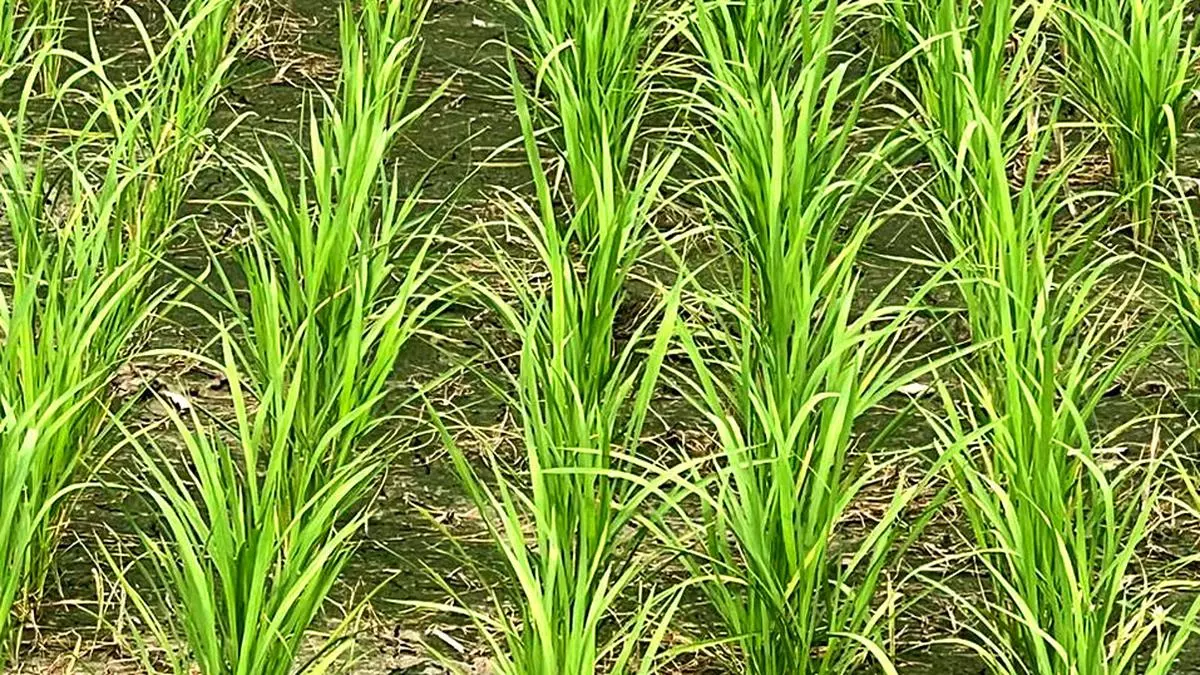Telangana, AP farmers opt for direct sowing of rice to tackle labour scarcity, costs
Moving away from the traditional way of planting paddy seedlings after raising nurseries, farmers in some parts of Telangana and Andhra Pradesh are preferring to go in for direct rice seeding, both wet (drum seeding) and dry direct seed rice (DSR) methods.
The advantage — it reduces the dependency on labour to grow the nurseries and, then, to plant the seedlings in the field. With farm labour becoming very scarce and the cost of labour to take care of the sowings going up sharply, farmers are increasingly showing interest in shifting to direct seeding and drum seeding. These methods would require less water, without sacrificing on yields.
“We expect the area under the new formats would be around 6-10 lakh acres. We carried out some experiments in the last kharif season. It showed some promise, inspiring more farmers to go for these alternative methods,” an agricultural scientist with Prof. Jayashankar Telangana State Agricultural University (PJTSAU) told businessline.
Use of drones
The drum seeding method involves sowing pre-germinated paddy seeds using drums. Made up of fibre material, these drums dispense seeds evenly in rows spaced 20 cm apart in puddled and levelled fields. “You can use even drones to sow the germinated seeds. Experiments showed good results. You can speed up sowing in an acre in a few hours,” he said.
Instead of raising nurseries for 3-4 weeks, farmers sow the seed overnight and allow it to sprout. Care should be taken not to delay sowing, as seeds with long shoot growth are unsuitable for drum seeding. Scientists advise a 30-minute air-drying of the germinated seed to make it easy to dispense.
Disadvantage
“Though puddling is a common feature in the traditional method of sowing of the seedlings and drum-seed method, farmers are required to drain out excess water. Keeping the surface moist would do in this method, unlike in the traditional method where they would require standing water,” he said.
One big disadvantage of this method is that heavy rain immediately after sowing could wash away the germinated seeds.
Farmers’ associations expect the numbers (sowings through alternative methods) could be much higher. “It could be around 20 per cent of the paddy area (of 60 lakh acres). Farmers see value in the method,” S Malla Reddy of All India Kisan Sabha said.
